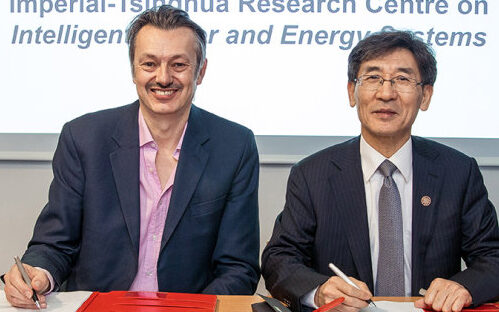Imperial College London (ICL) and Tsinghua University are launching a virtual centre to collaborate on pioneering research into advanced energy systems.
The universities have agreed to jointly study “next-generation technologies and intelligent control strategies” towards low-carbon power and energy systems.
The centre will be the latest collaboration between the two universities, which have previously worked together on research projects including ‘the role of energy storage in enhancing operation and stability performance of sustainable power systems’.
ICL— which is a founding member and key battery research partner of the UK’s Faraday Institution— said Britain “faces issues around system resilience and the implementation of grid scale energy storage”, despite making “huge progress in driving down the carbon intensity of its electricity system” and being a “global example of how to manage renewable-dominated systems”.
“The Chinese electricity grid has pioneered ultra high voltage for long distance transmission, collects a vast amount of data about their systems and has a huge installed base of renewables,” ICL said. “However, the huge challenge is decarbonising the system while supporting economic growth and the trend towards urbanisation.”
An ICL spokesperson told BEST Battery Briefing: “We won’t have a building as such, but both universities have massive facilities in place to support those working on the project in both countries.”
Key to the centre’s activities will be exchanges of academic staff, researchers and PhD students between the two institutions, and work with “industrial partners” from both countries.
A recent ICL study said lithium-ion batteries would be “the cheapest way to store electricity, such as from solar or wind farms,” by 2050. Researchers calculated the cost of storing energy with different technologies, including large-scale batteries.












